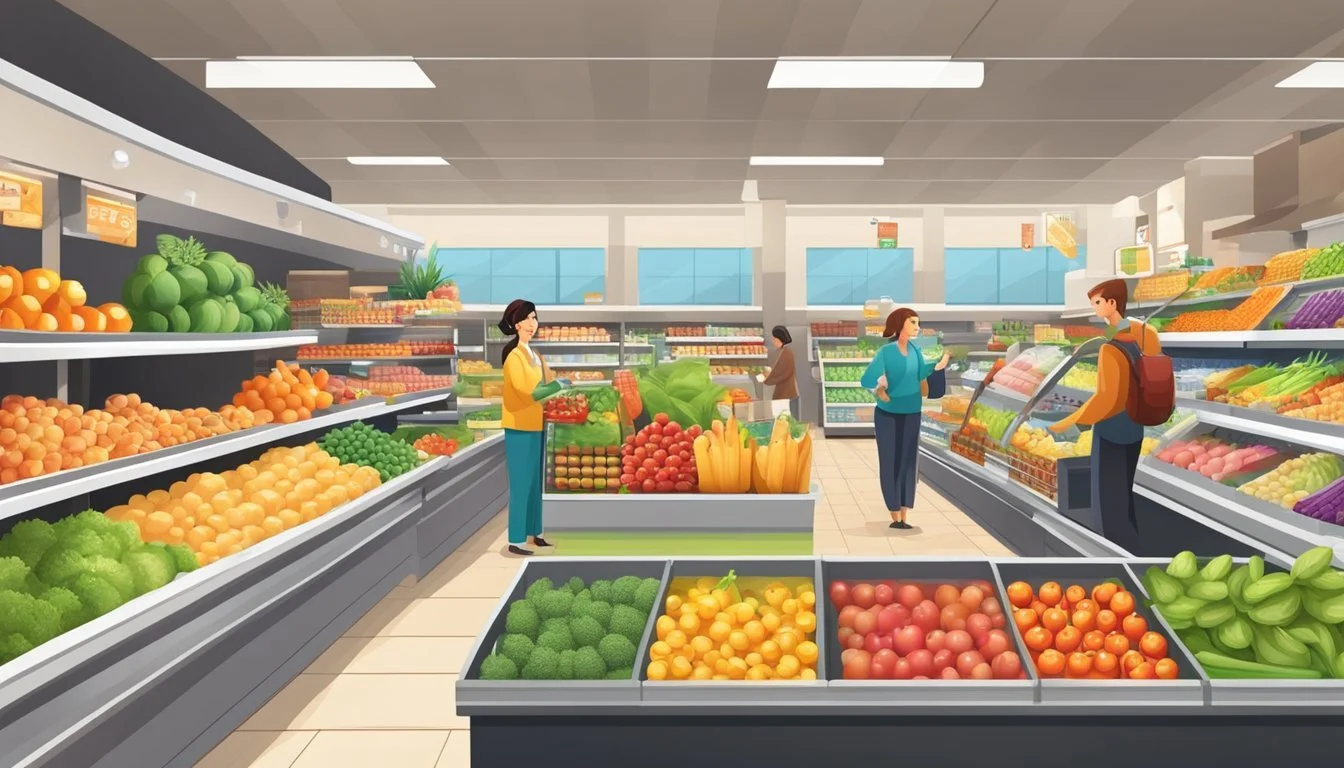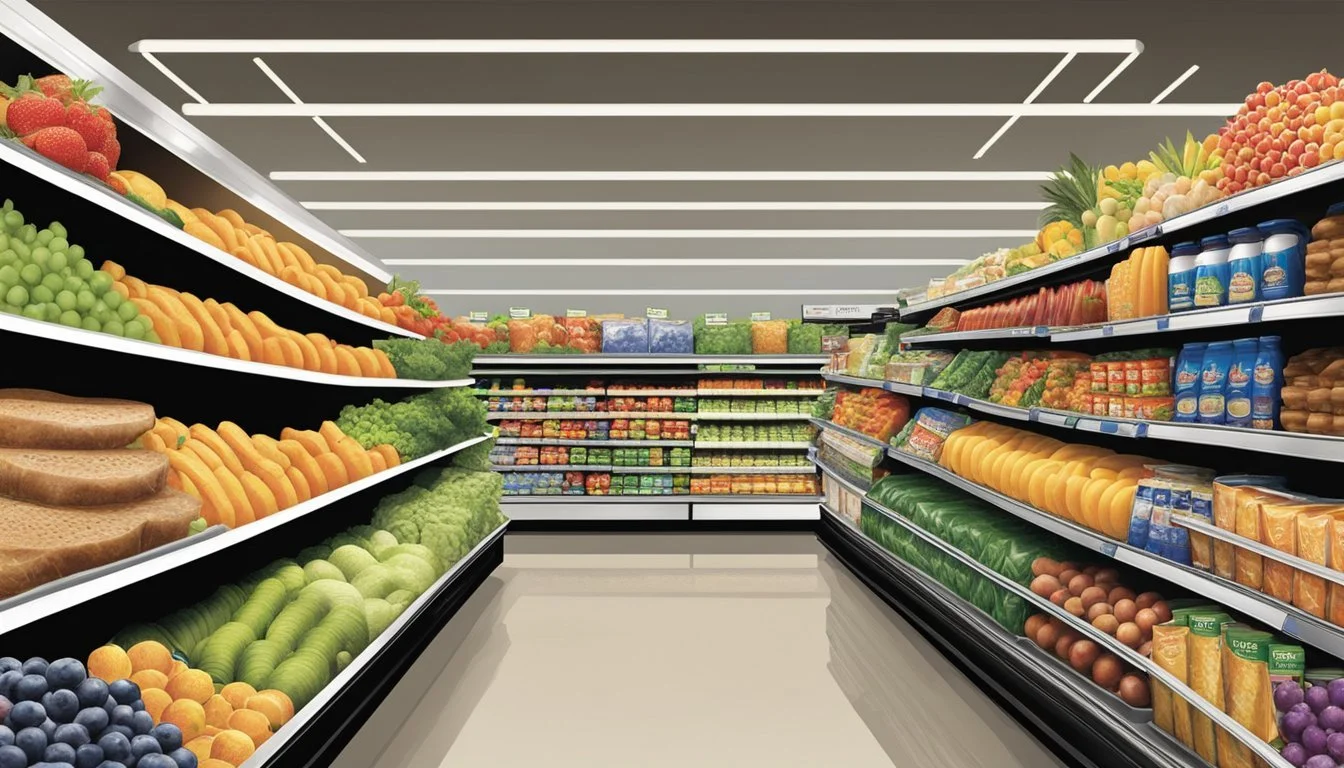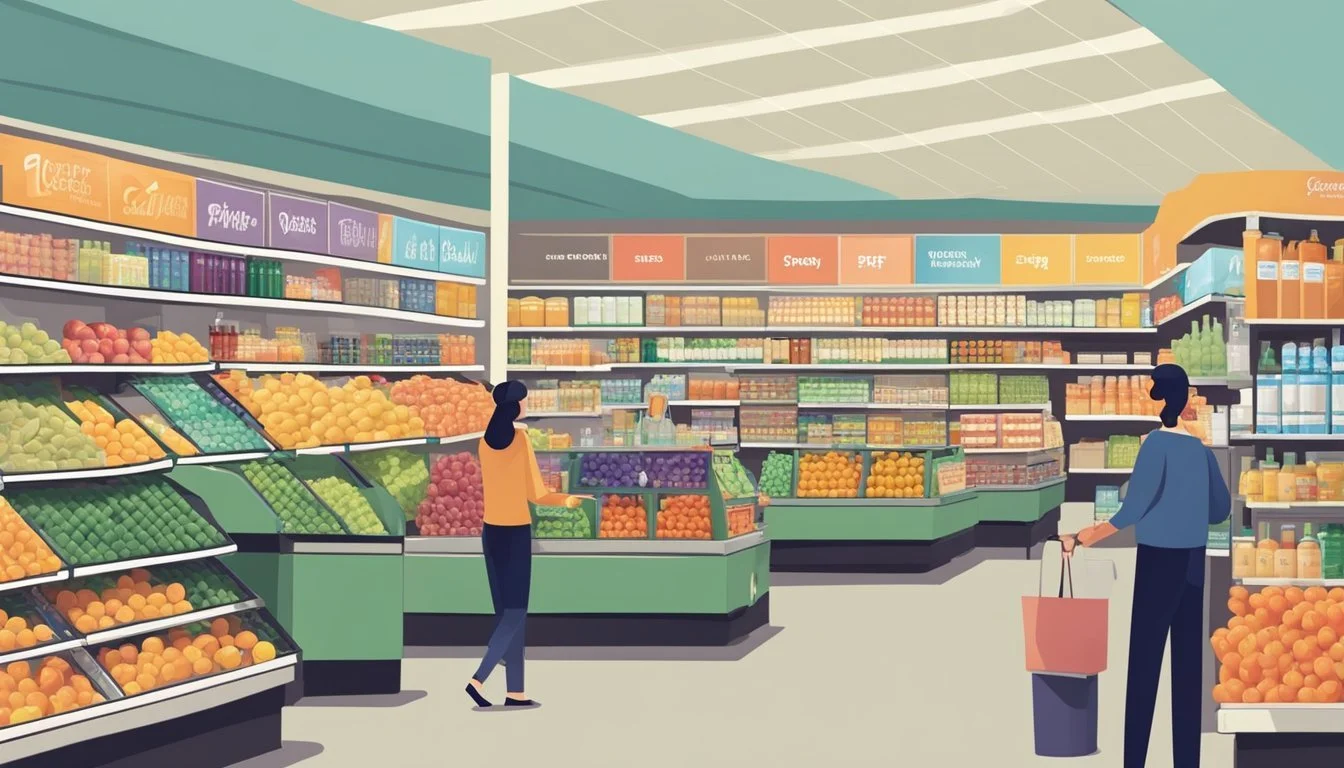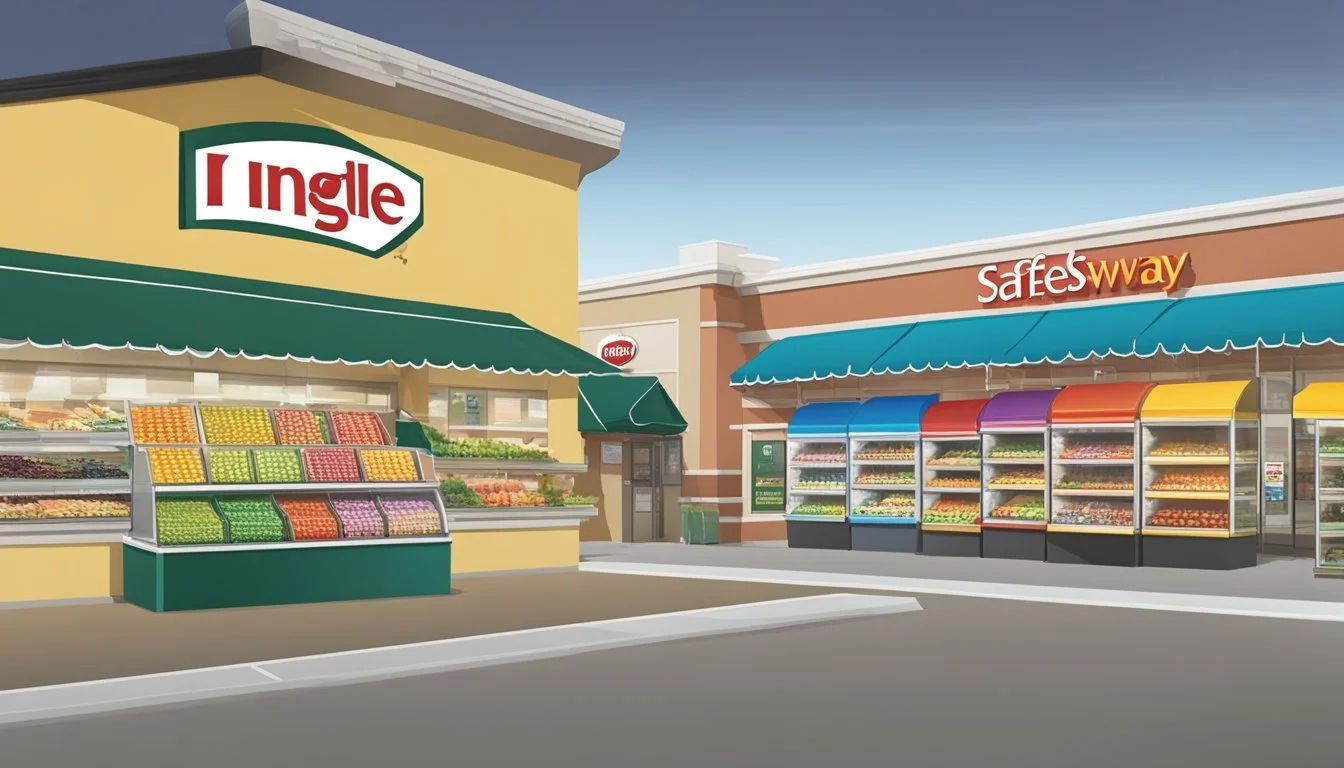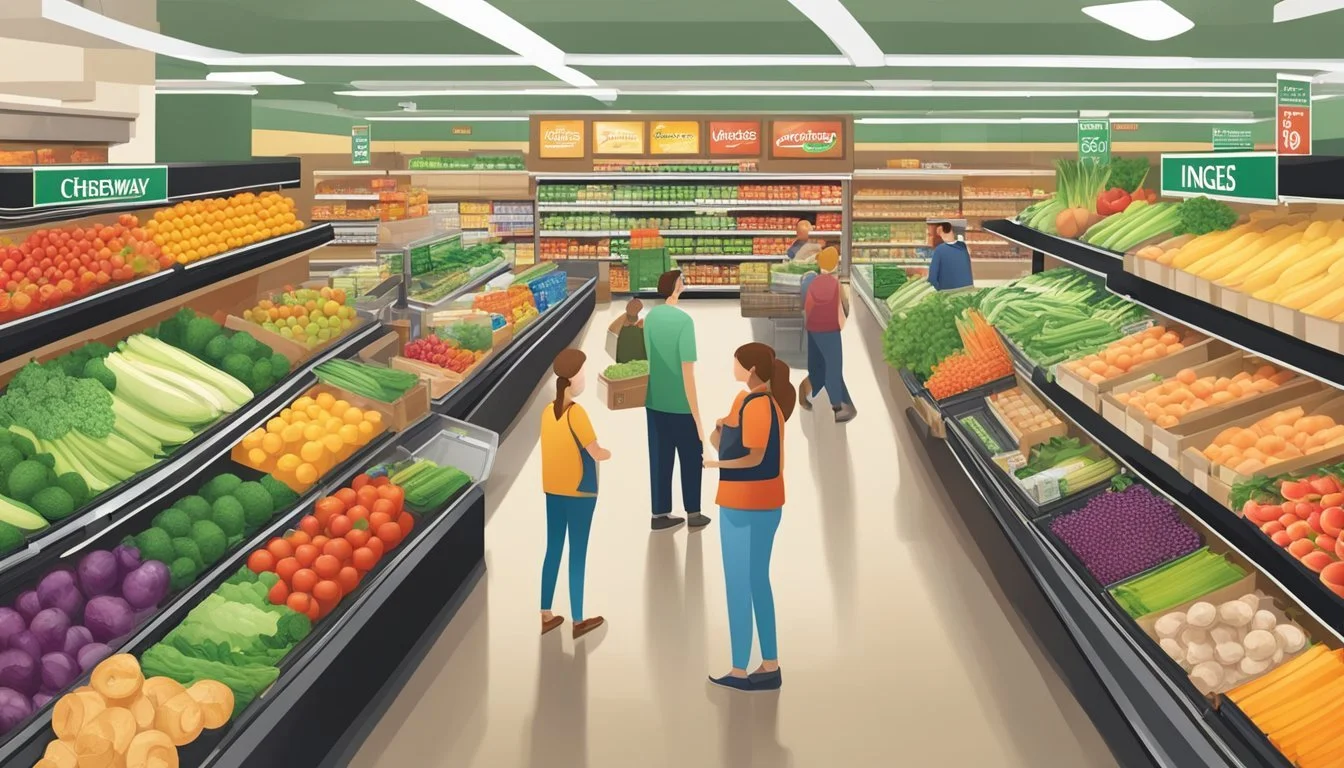Ingles Markets vs Safeway
A Comprehensive Comparison of Prices, Selection, and Service
Grocery shopping is a routine task for most households, but choosing the right store can make a significant difference in price, quality, and overall experience. Ingles Markets and Safeway are two well-known grocery chains that cater to different regions of the United States. Each offers its own unique advantages and drawbacks.
Ingles Markets generally provides better value for shoppers, with competitive prices and a strong focus on local products. The company operates primarily in the southeastern United States, emphasizing fresh produce and regional specialties. Safeway, on the other hand, has a broader national presence and offers a wider variety of products, including more organic and international options.
Both stores strive to meet the needs of their customers, but their approaches differ. Ingles Markets tends to have a more personalized, community-oriented feel, while Safeway aims for consistency across its locations. Factors such as store layout, customer service, and loyalty programs also play a role in determining which chain might be the better choice for individual shoppers.
Company Overviews
Ingles Markets and Safeway are two prominent grocery chains in the United States. Each has a unique history and trajectory that has shaped its presence in the supermarket industry today.
History of Ingles Markets
Ingles Markets began its journey in 1963 when Bob Ingle opened his first grocery store in Asheville, North Carolina. The company focused on serving rural communities in the southeastern United States. Ingles expanded gradually, emphasizing fresh produce and competitive pricing.
By the 1980s, Ingles had grown to over 100 stores. The chain introduced its own dairy processing plant in 1987, enhancing its control over product quality and costs.
Ingles Markets went public in 1987, trading on NASDAQ. This move provided capital for further expansion and modernization efforts.
Today, Ingles operates over 200 supermarkets across six southeastern states. The company maintains its headquarters in Black Mountain, North Carolina.
History of Safeway
Safeway's roots trace back to 1915 when M.B. Skaggs purchased a small grocery store in American Falls, Idaho. Skaggs' innovative approach to pricing and operations led to rapid expansion.
In 1926, Safeway was officially formed after merging with 322 Skaggs stores. The company went public in 1927 and continued its growth through acquisitions and new store openings.
Safeway pioneered several industry firsts, including nutritional labeling in the 1930s and introducing self-service produce departments in the 1940s.
The company expanded internationally in the 1960s and 1970s. However, it later refocused on its core North American market.
In 2015, Safeway merged with Albertsons, creating one of the largest food and drug retailers in the United States. Today, Safeway operates over 900 stores across the country.
Store Locations and Expansion
Ingles Markets and Safeway have distinct geographical footprints and expansion strategies. Their store locations significantly impact regional market dynamics and consumer access to groceries.
Ingles Markets Locations
Ingles Markets operates primarily in the southeastern United States. The chain has a strong presence in six states: North Carolina, South Carolina, Georgia, Tennessee, Virginia, and Alabama. With over 200 supermarkets, Ingles concentrates its operations in rural and suburban areas. The company's headquarters is in Black Mountain, North Carolina.
Ingles focuses on steady, targeted growth within its existing markets. This strategy allows the chain to maintain a strong regional identity and capitalize on local consumer preferences.
Safeway Presence
Safeway boasts a much larger national footprint compared to Ingles. The chain operates over 900 stores across 17 states and the District of Columbia. Safeway has a significant presence in the western United States, particularly in California and Washington.
In recent years, Safeway has undergone ownership changes and mergers. This has led to shifts in its expansion strategy. The chain now focuses on strengthening its position in existing markets rather than aggressive expansion into new territories.
Regional Market Impact
The differing geographical focuses of Ingles and Safeway create distinct competitive landscapes in their respective regions. Ingles' concentration in the Southeast allows it to tailor offerings to local tastes and compete effectively against other regional chains.
Safeway's wider distribution gives it a broader customer base but also puts it in direct competition with national giants like Walmart and Kroger. In the Washington area, Safeway faces stiff competition from chains like Giant and Harris Teeter.
Both chains adapt their store formats and product selections to suit local market conditions. This flexibility helps them maintain relevance in an increasingly competitive grocery landscape.
Product Range and Quality
Ingles Markets and Safeway both offer extensive product selections to meet diverse customer needs. Each store has its own strengths in terms of variety, quality, and organic options.
Ingles Markets Product Offerings
Ingles Markets boasts a wide array of products across various departments. Their stores typically feature:
An extensive produce section with locally sourced fruits and vegetables
A full-service meat department offering custom cuts
A bakery with freshly made breads and desserts
A deli counter with prepared foods and made-to-order sandwiches
A sizable dairy section with regional and national brands
Aisles stocked with pantry staples, snacks, and beverages
Ingles also carries a selection of health and beauty products, household items, and pet supplies. Many locations include a floral department and a pharmacy.
Safeway's Selection
Safeway stores offer a comprehensive range of products to cater to diverse shopper preferences. Their inventory typically includes:
A large produce department with conventional and organic options
A meat and seafood counter with fresh and frozen selections
An in-store bakery producing artisan breads and custom cakes
A deli offering rotisserie chickens, salads, and party platters
Extensive dairy and frozen food sections
Aisles filled with national brands and Safeway's own private label items
Many Safeway locations feature specialty departments such as sushi bars, coffee shops, and expanded wine and beer sections. The stores also stock non-food items like kitchen gadgets and seasonal decor.
Quality of Produce
Both Ingles Markets and Safeway prioritize fresh produce, but their approaches differ slightly.
Ingles Markets:
Emphasizes locally sourced fruits and vegetables when possible
Rotates seasonal produce frequently
Offers a mix of conventional and organic options
Safeway:
Sources produce from both local and national suppliers
Implements strict quality control measures
Provides a "fresh cut" section with pre-prepped fruits and vegetables
Customer experiences with produce quality can vary by location and season for both chains.
Organic Options
Ingles Markets and Safeway have expanded their organic offerings in recent years to meet growing consumer demand.
Ingles Markets:
Carries a selection of organic produce, dairy, and pantry items
Offers some organic meats and poultry
Stocks organic baby food and health products
Safeway:
Features the O Organics private label brand across multiple departments
Provides a dedicated organic produce section in many stores
Offers organic options in meat, dairy, and frozen food categories
Both chains continue to increase their organic product ranges, though Safeway generally offers a more extensive selection through its private label brand.
Pricing and Value for Money
Ingles Markets and Safeway employ different pricing strategies to attract customers. Both chains offer competitive prices and savings opportunities, but their approaches vary in terms of regular pricing, discounts, and special promotions.
Comparing Prices
Ingles Markets and Safeway generally maintain competitive pricing on staple items. Ingles often focuses on keeping prices low for everyday essentials, particularly in their produce and meat departments. Safeway, on the other hand, may have slightly higher regular prices but compensates with frequent sales and promotions.
A typical shopping basket at Ingles Markets might cost 3-5% less than at Safeway for identical items. However, price differences can vary significantly depending on location, season, and specific products.
Discounts and Savings
Both chains offer loyalty programs to provide additional savings. Ingles' Advantage Card and Safeway's Just for U program allow customers to access digital coupons, personalized deals, and earn rewards points.
Safeway tends to offer more manufacturer coupons and combination deals, such as "buy one, get one free" promotions. Ingles focuses on store-brand discounts and bulk purchase savings.
Savvy shoppers can typically save 10-15% on their grocery bills by utilizing these programs effectively at either store.
Loss Leaders and Sale Prices
Ingles Markets and Safeway both use loss leaders to draw customers into their stores. These are items priced at or below cost to attract shoppers.
Ingles often features deeply discounted produce or meat as their primary loss leaders. These sales can offer savings of up to 50% on select items.
Safeway frequently rotates its loss leaders, focusing on popular national brands. Their weekly circular might include 3-5 items at significantly reduced prices, sometimes up to 60% off regular pricing.
Both stores adjust their sale prices and loss leader strategies based on local competition and seasonal demands.
Customer Experience
Ingles Markets and Safeway offer distinct shopping experiences, with notable differences in their checkout processes, customer service, and store layouts. These factors significantly impact customer satisfaction and loyalty.
Checkout Efficiency
Ingles Markets emphasizes speedy checkout processes. They employ sufficient staff during peak hours to reduce wait times. Many locations feature self-checkout options, giving customers more control over their shopping experience.
Safeway also provides self-checkout kiosks but focuses on personalized service at manned registers. Their "Just for U" loyalty program integrates with the checkout process, offering digital coupons and personalized deals. This can sometimes slow transactions but adds value for regular shoppers.
Both chains have implemented mobile payment options to streamline purchases. However, Safeway's app tends to be more user-friendly and widely adopted by customers.
Customer Service
Ingles Markets prides itself on a friendly, small-town atmosphere. Staff members often know regular customers by name and offer personalized recommendations. The company invests in employee training to ensure consistent service across departments.
Safeway takes a more standardized approach to customer service. They offer a satisfaction guarantee on their products and have dedicated customer service desks for returns and inquiries. Their pharmacies are known for knowledgeable staff and efficient prescription services.
Both chains provide special order services for hard-to-find items, but Ingles Markets typically excels in accommodating specific customer requests.
Store Cleanliness and Layout
Ingles Markets stores are generally well-maintained, with a focus on cleanliness in perishable departments. Their layout tends to be straightforward, making it easy for customers to find what they need. Many locations feature wide aisles to accommodate shopping carts comfortably.
Safeway stores often have a more modern feel, with updated lighting and signage. They frequently reorganize product placement to optimize shopping patterns. This can be frustrating for some customers but keeps the shopping experience fresh.
Both chains prioritize produce sections, placing them near store entrances. Safeway typically offers a wider variety of organic and specialty products, while Ingles Markets focuses on locally sourced items when possible.
Specialized Departments
Ingles Markets and Safeway both offer specialized departments to cater to diverse customer needs. These sections provide fresh, high-quality products and convenient options for shoppers.
Deli and Bakery
Ingles Markets features a full-service deli with a variety of meats, cheeses, and prepared foods. Their bakery produces fresh bread, cakes, and pastries daily. Safeway's deli department offers made-to-order sandwiches and a selection of pre-made salads. Their bakery provides custom cake decorating services and a wide assortment of baked goods.
Both stores offer party platters and catering options for special events. Ingles Markets often includes a hot food bar with rotisserie chicken and daily specials. Safeway's bakery is known for its artisan breads and seasonal desserts.
Meat and Seafood
Ingles Markets prides itself on its meat department, offering a range of fresh cuts and marinated options. Their seafood section includes both fresh and frozen selections. Safeway provides a similar array of meat choices, with an emphasis on organic and grass-fed options.
Safeway's seafood department often features a broader selection of fish and shellfish compared to Ingles Markets. Both stores offer custom cuts and special orders upon request. Ingles Markets frequently runs promotions on popular meat items, while Safeway focuses on sustainable seafood options.
Frozen Foods and Dairy
Both Ingles Markets and Safeway maintain extensive frozen food sections. Ingles Markets offers a mix of national brands and private label options. Safeway's frozen department includes a variety of international cuisines and vegetarian alternatives.
In the dairy aisle, Ingles Markets stocks local milk and cheese products alongside national brands. Safeway's dairy section emphasizes organic and plant-based alternatives. Both stores carry a range of yogurts, butter, and eggs. Ingles Markets often features regional dairy products, while Safeway provides a wider selection of non-dairy options.
Grocery Shopping Convenience
Ingles Markets and Safeway offer distinct shopping experiences, each with unique features to enhance customer convenience. Both chains strive to provide easy access to groceries through various channels and technologies.
In-Store Shopping Experience
Ingles Markets prides itself on a welcoming atmosphere with wide aisles and clear signage. The stores typically feature well-organized departments, making it simple for shoppers to find what they need. Many locations offer in-store pharmacies and fuel centers for added convenience.
Safeway stores often have a more modern feel, with some featuring Starbucks cafes or wine bars. The chain emphasizes fresh produce displays and often includes specialty sections like sushi bars or olive bars. Both retailers provide self-checkout options to reduce wait times.
Online Ordering and Delivery
Safeway has made significant strides in e-commerce, offering robust online ordering and delivery services in many markets. Customers can shop via the website or mobile app and schedule deliveries or curbside pickup. The service integrates with Safeway's loyalty program for seamless savings.
Ingles Markets has been slower to adopt widespread online ordering but has begun expanding these options in select areas. Where available, customers can place orders for curbside pickup. Delivery services are more limited compared to Safeway's offerings.
Mobile Apps and Technology
Safeway's mobile app serves as a comprehensive tool for customers. It allows for digital coupon clipping, list-making, and order placement. The app also provides personalized deals based on shopping history.
Ingles Markets offers a more basic mobile app focused primarily on digital coupons and weekly ads. While functional, it lacks some of the advanced features found in Safeway's technology offerings.
Both chains have implemented digital loyalty programs, accessible through their respective apps or physical cards. These programs offer personalized discounts and fuel rewards at participating locations.
Brand Reputation and Ratings
Ingles Markets and Safeway have distinct brand reputations shaped by customer experiences, quality offerings, and industry recognition. Both chains have carved out unique positions in their respective markets through years of service and community engagement.
Customer Loyalty and Trust
Ingles Markets has fostered strong customer loyalty in the Southeastern United States. The company's focus on local products and community involvement resonates with shoppers in rural and suburban areas. Ingles' "Taste of Local" program, which highlights regional producers, has boosted trust among customers who value supporting local businesses.
Safeway, with its wider national presence, has built trust through consistent service and product quality. The chain's loyalty program, Just for U, has been effective in retaining customers by offering personalized deals and savings. A recent survey of grocery shoppers in Safeway's operating areas indicated high levels of repeat business and positive word-of-mouth recommendations.
Quality Scores and Awards
Ingles Markets has received recognition for its store-brand products. The company's Laura Lynn private label line has won several taste tests and quality awards, particularly for dairy products and snack items. In 2023, Ingles' meat department was rated top in its category by a regional consumer research firm.
Safeway's O Organics and Signature Select brands have garnered multiple accolades. The chain's organic offerings have consistently scored well in third-party quality assessments. Safeway has also been recognized for its sustainable practices, earning industry awards for energy efficiency and waste reduction in its stores.
Expert and Consumer Reviews
Consumer Reports has favorably rated both Ingles Markets and Safeway in recent years. Ingles received high marks for its produce freshness and customer service in rural markets. The chain's pharmacy services were also highlighted as a strength in expert evaluations.
Safeway has been praised for its wide selection and competitive pricing in urban and suburban areas. Online reviews frequently mention the chain's clean stores and efficient checkout process. However, some consumers have noted inconsistencies in product availability across different Safeway locations.
Both retailers have faced challenges in adapting to e-commerce trends, with mixed reviews for their online ordering and delivery services. Industry experts have noted that both chains are investing in improving their digital capabilities to meet evolving consumer expectations.
Final Comparison
Ingles Markets and Safeway offer distinct shopping experiences for customers. Both chains aim to provide quality groceries, but they differ in several key areas.
Pricing varies between the two stores. Ingles Markets often has competitive prices on staple items and produce. Safeway, while sometimes pricier, frequently runs sales and promotions.
Store atmosphere is another point of contrast. Ingles Markets typically maintains a more local, community-focused feel. Safeway stores often have a more standardized, corporate appearance.
Product selection differs as well. Ingles Markets emphasizes regional products and local partnerships. Safeway offers a wider range of national brands and its own private label items.
Customer service approaches vary. Ingles Markets prides itself on personalized attention. Safeway provides efficient service with a focus on quick checkout experiences.
Location accessibility is worth considering. Ingles Markets has a strong presence in the southeastern United States. Safeway operates in more states but with a concentration in the western and mid-Atlantic regions.
Loyalty programs are available at both chains. Ingles Markets offers the Ingles Advantage Card. Safeway provides the Just for U program with personalized deals.
In terms of store layout, Ingles Markets often features larger stores with wider aisles. Safeway stores tend to have a more compact design, especially in urban areas.


